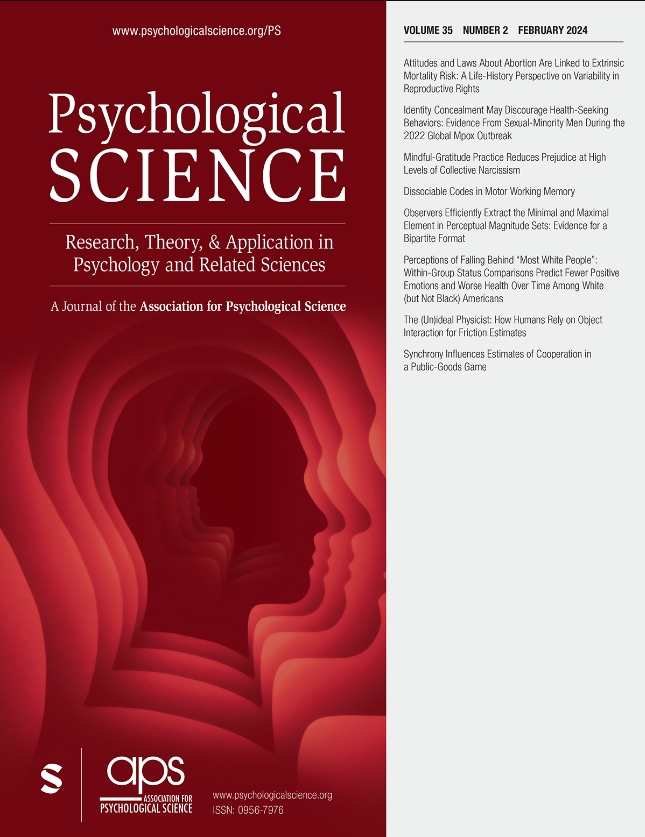改进决策中的偏见:人们注重相对减少不良结果
IF 4.8
1区 心理学
Q1 PSYCHOLOGY, MULTIDISCIPLINARY
引用次数: 0
摘要
人们经常会决定是否投入稀缺资源--如时间、金钱或精力--以提高获得积极结果的机会。例如,医生可能会决定是否利用稀缺的药物来提高病人康复的几率,学生可能会决定是否多学习几个小时来提高考试通过的几率。我们进行了 11 项研究(5342 名成年人),发现有证据表明,人们的行为似乎是在关注这种改善所导致的坏结果的相对减少。因此,对于同样的进步(例如进步 10 个百分点),人们的重视程度会因最初的成功几率是高是低而大相径庭。这种对相对减少不良后果的关注,导致了违反规范标准的风险偏好(研究 1a-1g 和 2a),当决策变得更具后果性时,这种偏好会被放大(研究 2b),甚至导致经验丰富的专业人士做出次优决策(研究 3)。本文章由计算机程序翻译,如有差异,请以英文原文为准。
Biases in Improvement Decisions: People Focus on the Relative Reduction in Bad Outcomes
People often decide whether to invest scarce resources—such as time, money, or energy—to improve their chances of a positive outcome. For example, a doctor might decide whether to utilize scarce medicine to improve a patient’s chances of recovery, or a student might decide whether to study a few additional hours to increase their chances of passing an exam. We conducted 11 studies ( N = 5,342 adults) and found evidence that people behave as if they focus on the relative reduction in bad outcomes caused by such improvements. As a consequence, the same improvements (e.g., 10-percentage-point improvements) are valued very differently depending on whether one’s initial chances of success are high or low. This focus on the relative reduction of bad outcomes drives risk preferences that violate normative standards (Studies 1a–1g and 2a), is amplified when decisions become more consequential (Study 2b), and leads even experienced professionals to make suboptimal decisions (Study 3).
求助全文
通过发布文献求助,成功后即可免费获取论文全文。
去求助
来源期刊

Psychological Science
PSYCHOLOGY, MULTIDISCIPLINARY-
CiteScore
13.30
自引率
0.00%
发文量
156
期刊介绍:
Psychological Science, the flagship journal of The Association for Psychological Science (previously the American Psychological Society), is a leading publication in the field with a citation ranking/impact factor among the top ten worldwide. It publishes authoritative articles covering various domains of psychological science, including brain and behavior, clinical science, cognition, learning and memory, social psychology, and developmental psychology. In addition to full-length articles, the journal features summaries of new research developments and discussions on psychological issues in government and public affairs. "Psychological Science" is published twelve times annually.
 求助内容:
求助内容: 应助结果提醒方式:
应助结果提醒方式:


